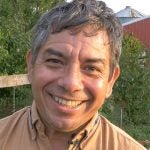This article is excerpted from Soil Health: A Security Threat Profile Report by the Food & Global Security Network Compiled by Farmwel Supported by FAI Farms — published in October 2021. It is republished here with permission.
Some have said that “the soil will save us” or that “in soil we trust”; others have accurately described the rise and fall of civilizations based on how they have related to this thin layer of life-giving and energy transforming infrastructure that we inherited from the past. We still have soil thanks to the evolution of the Earth and the living systems that have thrived on it. Our current population is possible because of the soil. What we do to the soil, we do unto ourselves. Soil, its health, or lack of it, its loss or regeneration, as in the past, is again at the center of global mass migrations, hunger, malnutrition, economic collapse, climate change … the list goes on.
This is a writing about soil, but not as matter or as a medium, rather about how it came to be, and how we can work with the Earth’s ecosystems so we can regenerate it, and as a result restore in a significant way, the health of the planetary ecology, communities, and nations. I am writing this article in a language I am not native to, in a land I am not native to (Minnesota), and in a mindset I am not native to. I write this seeking spiritual connection between my indigenous self, my indigenous intellect, my connection to the systems that have regenerated the Earth’s living systems for millions of years, the systems that delivered us the diverse living systems which allowed us to evolve into our current human form, and the colonizing world that has now verifiably succeeded at creating the most effective structures for achieving global mass destruction.
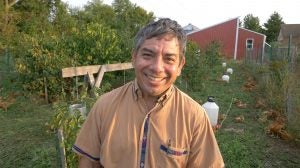
I am also writing from my experience as a Guatemalan born in poverty, raised with a close symbiotic relationship with other living ecosystems, someone who experienced first-hand the wealth that healthy soil and living systems deliver, who experienced the original concept of indigenous regenerative ways. As a child I was taught to understand that we don’t “work with nature”; rather, we ARE nature. I am writing these words from an indigenous perspective on agriculture and food, a perspective recently “discovered” and similar to other discoveries has been named “regenerative”, and like other colonizing processes is now under full scale appropriation and segregation from its original expression, the one that holds the promise for large-scale planetary solutions to climate, hunger, malnutrition, poverty, and overall loss of the biodiversity on which we depend for our human survival.
I may not be native to this land I now call home, but I am not a colonizer or invader either. I know this because I have accepted, and fully embrace the fact that I, as any other living creature, am indigenous to this planet. We all came from it, because of it, and because of the evolutionary processes which gave us a magnificent and balanced design for all living systems to thrive. Systems that symbiotically feed on each other and have moved across time, an ebb and flow, a planetary level dance where ecosystems thrive and advance and make room for other living systems to emerge, thrive, evolve.
From this perspective, I offer some solutions to counteract the planetary disruption caused by our species, the largest the world has ever seen. I hope we will all see the need to collectively grasp the magnitude of the problem and build the indigenous intellect needed to move forward. We must be an intelligent species, but so far, the intelligent and rational part that is supposed to separate us from the behavior of other species has not fully kicked in. We insist on devouring the very planet that feeds us, and from that perspective, we cannot collectively claim to be better than a virus or bacteria that does the same till they consume the body that feeds them and their populations collapse. Yes, many of us are mobilizing in a way counter to our destructive and colonizing urges, and more in alignment with our indigenous sense of belonging to the Earth and of being part of its living systems, but at a large-scale we are still too few to tip the balance of destruction over to regeneration.
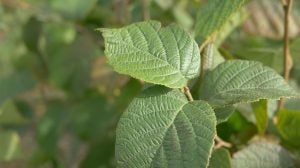
Understanding this divide is critical for a proper discussion of the issue of climate disruption. Too often, hearing that regenerative agriculture is not “economical” or “scalable” enough to be a solution. Embedded in those questions and remarks is the colonizing concept of extraction and exploitation. And yes, regenerating the planet means shifting away from degenerative colonizing ways, and to do so we must radically change how we do things. That radical mental, economic, and structural shift from colonizer to an indigenous-centered stewardship of resources is what is not currently scalable, not the actual physical transition of the land. Let’s not confuse the scalability potential of regenerative agriculture design with the lack of capacity to think collectively and transform our economies of extraction and exploitation into economies of regeneration at scale. The two may be connected at some point, but the truth is that there is still sufficient land outside of corporate control, in the hands of small farmers, native tribes, and community holdings to reach a tipping point. We can welcome the colonizers as they decide to shift, but we don’t have to wait for the current system to decide to change at scale. We have sufficient scale. We just need better organization and to build infrastructure to harness the power that we already have.
The indigenous farmer
My experience as a farmer and farming systems professional has always been grounded in this indigenous understanding of the Earth’s ecosystems. Yes, I obtained conventional monocropping, row-cropping, mechanized agricultural training, but after first having understood how the Earth’s ecosystems operate, it was impossible to swallow all the theories and arguments being sold to us as students. It also took more than 25 years before those teachings would become relevant to my life’s dedication to food and agriculture again. But here we are, and now more than ever, we will depend on this foundational systems-level understanding to regain our footing and give it our best at reversing the global calamities that colonizing systems have created.
From an indigenous perspective, the idea that farmers or companies “produce” food is ridiculous. As farmers and food systems professionals, our single most significant role is: “the stewarding of energy transformation processes that turn inedible energy into physical forms that we call food.” These energy transformation systems developed over billions of years and were perfected by the Earth’s evolutionary processes. Collectively they have the capacity to continually cycle energy at the largest scale the planet can support, and these energy transformation processes result in the diversity of life, the food systems that support this diversity, and the ebb and flow of the Earth’s ecosystems, the evolution of us all.
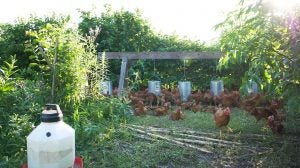
So as stewards of energy transformation, rather than “producers of food,” we must understand that the collapse of our systems is the result of how we have mismanaged this massive inheritance. And to solve our current riddle we must understand where the pivoting points are, so let me humbly submit to you that the Earth’s energy transformation capacity which ensures our food, the health of our bodies, our reproductive, mental, spiritual health, the very evolution of our species, all these basic and indispensable things are defined by; are governed by, how energy flows and balances out. Mess up these cycles, and we get the consequences we are living through. Address these root causes, and we stand a chance of a civilized society into the future. To apply these concepts to real life we must codify them according to indigenous ways of thinking — because if we apply colonizing extractive and exploitative codification processes, then we are bound to continue to consume the planet till we collapse as a species.
Poor soil leads to starvation & migration
From previous experiences in Mexico, Guatemala, and many other places where we have tested this model, we know that when the soil is poor, so are the plants that we try to grow, and the animals that feed on them. Any harvest will also be poor. Poor soil results in sicker chickens and less forage, a poor harvest results in poor farmers, which results in less food available for communities, which exacerbates food insecurity. Less excess output means less support for the local economies, a spiral that if unbroken lands whole communities unable to support themselves, from there, conflict and violence erupts, migration and family breakdown, further increasing the overall civil unrest plaguing the planet. Poor soil across Mexico, Guatemala, El Salvador, and Honduras is the single most important reason families are starving. Political instability and simply lack of jobs was not sufficient to have people leave their communities at the scale that is happening now. Starvation has now forced sometimes upward of 160,000 families in a single year from some of these specific regions where data has been collected. That’s just one region; the world’s population is migrating at accelerated, alarming, and unsustainable rates and soil and the food that is derived from it, is at the center of most of this civil instability.
Decolonizing the mind
Too often, in our eagerness to impress and sound smart we create elaborate plans and long documents as we attempt to find solutions to today’s food and agriculture problems.
But the truth is that for the most part, the answer is right under our feet, and the code for finding those answers is all around us, with the abuelos and abuelas, healers and mentors. It has always been staring us in the face.
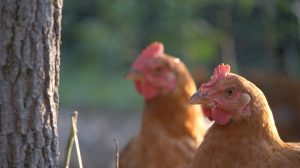
We can start by validating the elders in Native communities, their stories, and their wisdom, and their sacred instructions. The knowledge and tools may come from the universities of the world or the high towers, but the wisdom to use either for the common good will not. We have waited long enough, a few centuries in fact. We were promised progress and a civilized society, instead we are inheriting destruction and civil unrest.
Time to be one with creation again
We are at a time when the simplest solutions need more attention. Let’s stop talking about how we “scale” narrow and myopic ways of thinking. Instead let’s talk about how we embrace the scale of how nature works and let it do it again. Accelerating the transition to agroecological agriculture, land use and production may look more like accelerating the decolonization of the mind, so we don’t block the magnificent design we inherited from the Earth’s evolution and from the indigenous peoples of the world. Those who despite suffering colonization, genocide, invalidation, and almost total annihilation, have managed to protect over 80 percent of the world’s biodiversity on less than 20 percent of the total land-based surface of the Earth. They have also sustained a culture of sharing, inclusivity, and full understanding of how the Earth’s ecosystems operate.
If we are sufficiently intelligent as a species, we will stop trying to colonize this knowledge by reducing it to a few practices, labels, or market claims so that our colonizing systems can continue to extract and exploit. We have a global opportunity to decolonize the mind and to validate and adopt ways that worked for tens of thousands of years before colonization spread across continents, the systems that hold the code for a civilized modern world are still available to us.
To achieve this, we will need to build the collective intelligence and courage to decolonize; to defend and recover the indigenized world we need to become a truly civilized society. The path forward is embarrassingly simple, and even though our colonizing system and global structures stand firmly in the way, every person on Earth must realize that the most promising and powerful answer to a very large part of our current troubles, is right under our feet.
Reginaldo Haslett-Marroquin began working on economic development projects with indigenous Guatemalan communities in 1988. He consulted for UNDP and advised the World Council of Indigenous Peoples. He’s now president of the Regenerative Agriculture Alliance, based in the USA. His book, ‘In the Shadow of the Green Man’ is subtitled, ‘My Journey from Poverty and Hunger to Food Security and Hope’. He is also an advisor to the Food & Global Security Network. ‘Regenerating the planet means shifting from degenerative colonizing ways.
This article was published on behalf of American Farmland Trust.
